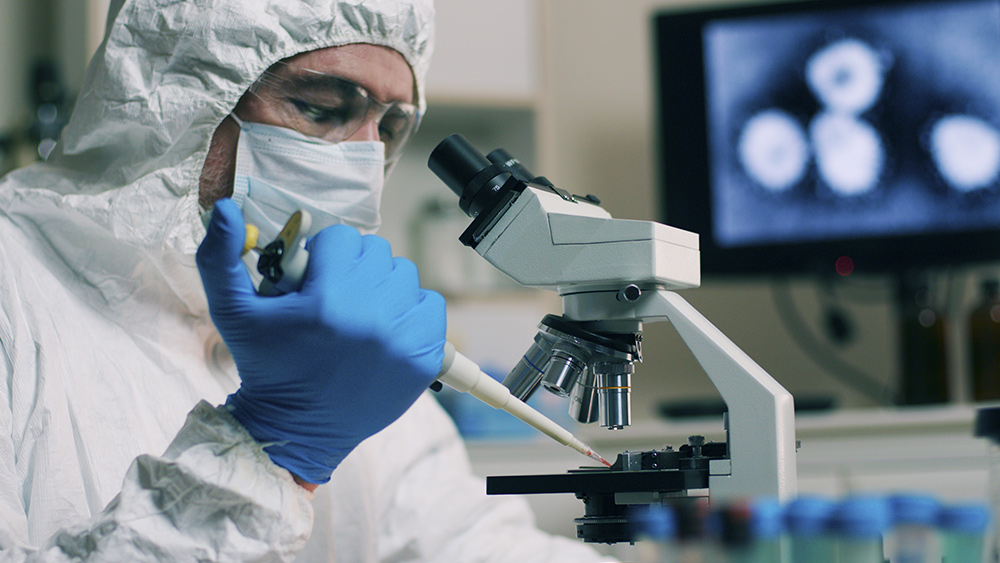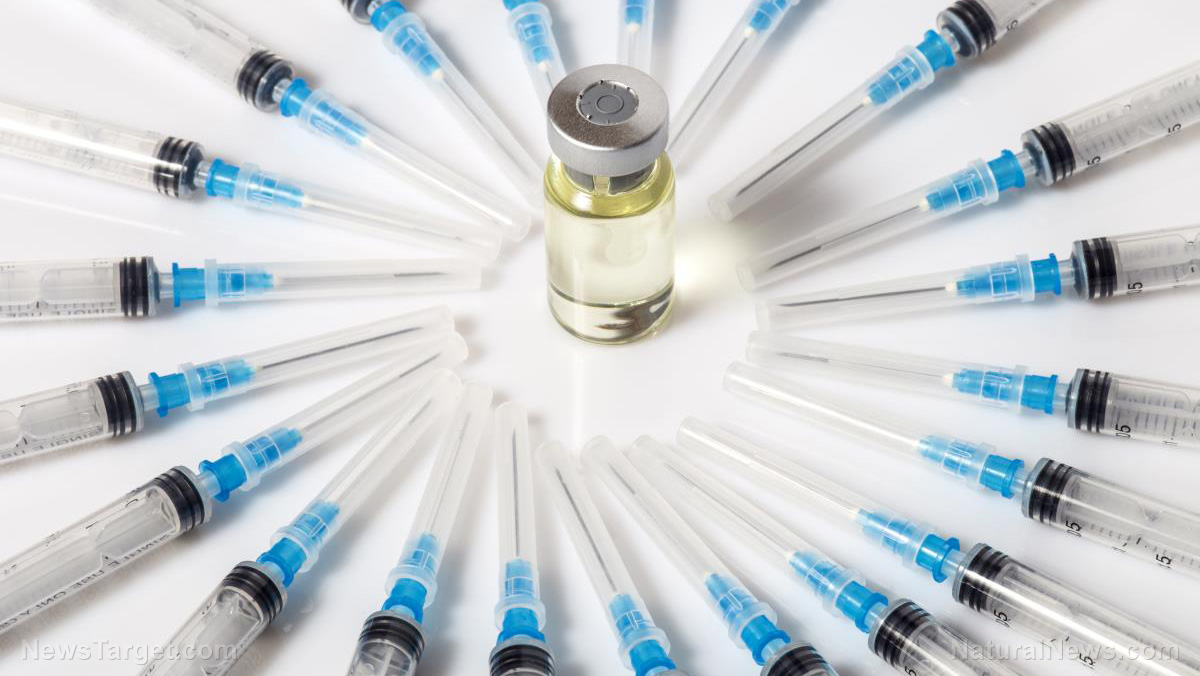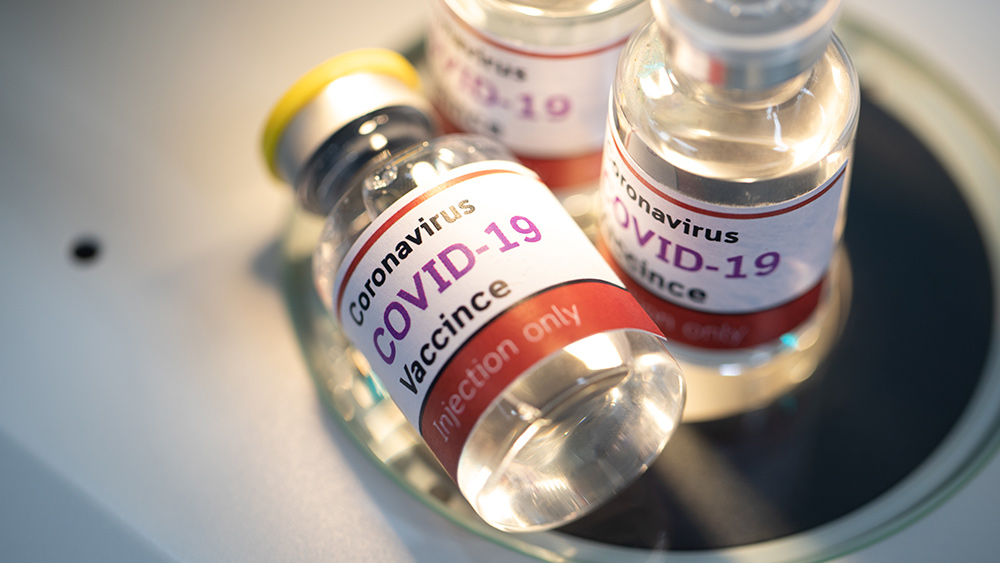Testing for a commensal gut bacterium could help identify people at risk of severe COVID-19
02/04/2021 / By Evangelyn Rodriguez

A new study suggests that the composition of gut microbiota could help predict COVID-19 severity. Researchers at the University of Massachusetts Medical School (UMMS) examined stool samples from COVID-19 patients and found that those who were critically ill had altered gut microbiomes. The researchers also identified a commensal bacterium called Enterococcus faecalis as a strong predictor of COVID-19 severity. E. faecalis is a symbiont with a potential to cause harm and has been associated with chronic inflammation in the gut.
The role of the gut microbiota in immune response
The human body is home to more than a trillion microorganisms. In fact, scientists have found that there are 10 times more bacterial cells in it than actual human cells. According to studies, commensal microbes begin inhabiting the human body at birth, with the majority staying in the intestine. More than 500 different species reside in the human gut, forming a microbial community often referred to as gut microbiota.
Gut microbiota influences a variety of functions that are crucial to good health, including nutrient absorption, energy production, nerve cell communication, mental development and immune response.
According to Ana Maldonado-Contreras, a microbiologist at UMMS, each microbial species in the human gut performs specialized tasks that are meant to help keep the body healthy. For instance, they help ensure that when a pathogen, such as a virus, invades the body, the immune system can mount a proper defense. Gut microbes do so by stimulating specialized immune cells to produce antiviral proteins that can help fight infections. At the same time, the gut microbiota regulates the intensity of the immune response to make sure it doesn’t damage any part of the body.
In a 2010 study published in the journal PNAS, researchers investigated the gut microbiota’s role in immune response following influenza virus infection. They found that gut microbial composition is critical in regulating the production of virus-specific immune cells and antibodies. In particular, they pinpointed bacteria that respond to the antibiotic neomycin as the main inducers of productive immune responses in the lungs. When these bacteria were present in the gut, they produced signals that prompted the production of pro-inflammatory proteins in response to the influenza virus. Interleukin (IL)-1B and IL-18 are signaling proteins that help facilitate viral clearance and promote cell-mediated immunity, respectively.
Predicting COVID-19 severity through the gut microbiome
In a study posted Jan. 6 in the preprint server medRxiv, Maldonado-Contreras and her colleagues at UMMS noted the need to identify biomarkers that can help predict clinical outcomes for patients with COVID-19 to determine who needs urgent treatment. Although most patients recover from the disease, some fall critically ill and succumb to it. Apart from comorbidities like cardiovascular disease or diabetes, researchers still have no clue which factors contribute to the striking differences in the clinical outcome of COVID-19 patients.
Maldonado-Contreras and her team hypothesized that an altered gut microbiome aggravates acute respiratory distress syndrome (ARDS) – a fatal complication of COVID-19 – in patients with other health conditions. A severe immune response called a cytokine storm is heavily implicated in the development of ARDS, and this uncontrolled inflammation is believed to be the main cause of lung injury, multiple organ failures and death in COVID-19 patients. (Related: Sufficient vitamin D levels can prevent severe COVID-19 outcomes, including death.)
To test their hypothesis, the researchers recruited hospitalized COVID-19 patients with severe and moderate symptoms. They collected stool and saliva samples for analysis in hopes of identifying microbiome markers that can predict whether a person is at risk of severe COVID-19 or not. The researchers found that the composition of a patient’s gut microbiota can predict his or her risk of developing severe COVID-19 respiratory symptoms with 92 percent accuracy. A patient’s oral microbiome, on the other hand, can only predict symptom severity with 84 percent accuracy.
The researchers also found that stool samples collected from patients with severe COVID-19 were enriched with E. faecalis, a commensal bacterium and opportunistic pathogen that can trigger inflammatory bowel disease (IBD). This suggests that the bacterium is a reliable predictor of COVID-19 disease severity. E. faecalis can easily be collected from stool samples and grown in laboratories – thus, the researchers propose that COVID-19 patients be tested for this bacterium.
“Enterococcus faecalis is already easily cultivable in clinical laboratories, as such we urge the medical community to include this bacterium as a robust predictor of COVID-19 severity when assessing risk stratification of patients in the clinic,” the researchers wrote in their report.
For the latest coronavirus developments, visit Pandemic.news.
Sources include:
Tagged Under: breakthrough, coronavirus, covid-19, discoveries, gut health, gut microbiota, immune response, immune system, oubreak, pandemic, research, viral infections
RECENT NEWS & ARTICLES
ImmuneSystem.News is a fact-based public education website published by Immune System News Features, LLC.
All content copyright © 2018 by Immune System News Features, LLC.
Contact Us with Tips or Corrections
All trademarks, registered trademarks and servicemarks mentioned on this site are the property of their respective owners.



















